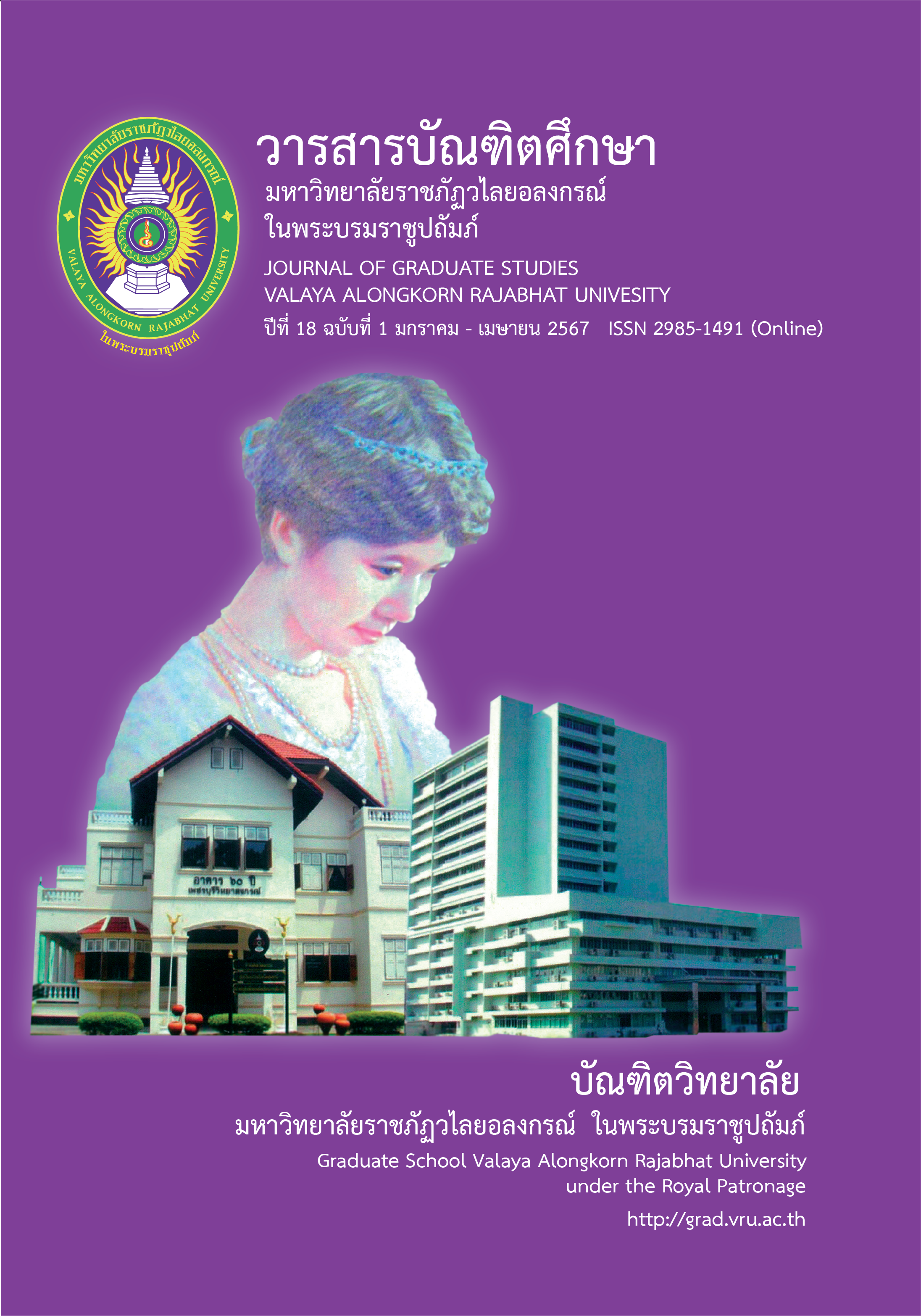RESULT OF A STUDY ON THE NEED FOR DIGITAL PLATFORMS USING DESIGN THINKING PROCESS TO ENHANCE THE POTENTIAL OF COMMUNITY ENTERPRISES
Main Article Content
Abstract
The research objectives were to 1) study the need for digital platforms by using the design thinking process to enhance the community enterprise potential, and 2) develop digital platform elements by using the design thinking process to enhance the community enterprise potential. This research is divided into 2 phases; Phase 1: the sample group consists of community enterprise in Nonthaburi Province, 20 entrepreneurs. The sample in phase 2 consisted of 10 entrepreneurs and 5 experts. Qualitative data was analyzed by content analysis. and quantitative data by means and standard deviation.
The findings revealed that 1) the need for digital platforms, i.e, platform features such as product review channels, advice and guidance channels, an online exhibition area and offline distribution, a learning center, various sources of knowledge, sharing opinions, a volunteer system to help community enterprises, providing various information about the upskilling and reskilling courses such as product photography and video production, video editing, packaging design, food preservation, and food processing, etc., and 2) digital platform elements consists of the following details: (1) curriculum or study courses; (2) shops, products or services (3) information or consulting organizations from various agencies (4) community knowledge sharing; and (5) important announcements. The components of the digital platform regarding community knowledge sharing are at the most appropriate level. It is calculated as a mean of 4.80 and a standard deviation of 0.45, followed by an overview of information or consulting organizations from various agencies and an overview of important announcements as well. It is calculated as a mean of 4.60 with a standard deviation of 0.89, and the overall list of digital platform components is appropriate at the highest level. Calculated as a mean of 4.60 and a standard deviation of 0.89.
Article Details

This work is licensed under a Creative Commons Attribution-NonCommercial-NoDerivatives 4.0 International License.
บทความทุกเรื่องได้รับการตรวจความถูกต้องทางวิชาการโดยผู้ทรงคุณวุฒิ ทรรศนะและข้อคิดเห็นในบทความ Journal of Global of Perspectives in Humanities and Social Sciences (J-GPHSS) มิใช่เป็นทรรศนะและความคิดของผู้จัดทำจึงมิใช่ความรับผิดชอบของบัณฑิตวิทยาลัย มหาวิทยาลัยราชภัฏวไลยอลงกรณ์ ในพระบรมราชูปถัมภ์ กองบรรณาธิการไม่สงวนสิทธิ์การคัดลอก แต่ให้อ้างอิงแหล่งที่มา
References
Buchanan, R. (1992). Wicked Problems in Design Thinking. Design issues. 8(2), 5-21.
Chamnanpon, K. & Lowanichchai, S. (2019). kānphatthanā rūpbǣp theknōlōyī di čhi than phư̄a songsœ̄m sakkayaphāp phūprakō̜pkān [A Development Model of Digital Technology for Supporting Entrepreneur]. Ratchaphruek Journal. 17(2), 130-138. Retrieved from https://so05.tci-thaijo.org/index.php/Ratchaphruekjournal/article/view/169803/135237
Cross, N. (2006). Designedly Ways of Knowing. London: Springer-Verlag.
Munpao, P. & Netwong, T. (2021). di čhi than phǣ lotfō̜m phư̄a yok radap thurakit bō̜rikān nai yuk khō wit - sipkāo [Digital Platform to Elevate Service Business in The Covid-19 Era]. Journal of Management Science Sakon Nakhon Rajabhat University. 1(1), 57-65. Retrieved from
Office of the National Economic and Social Development Council. (2021). rā ngok rō̜p phǣn phatthanā sētthakit læ sangkhom hǣng chāt chabap thī sipsām [Drafting the National Economic and Social Development Plan Framework]. Retrieved from https://www.nesdc.go.th/download/Plan13/Doc/กรอบแผนพัฒนาเศรษฐกิจและสังคมแห่งชาติ_ฉบับที่_13.pdf.
Office of the National Economic and Social Development Council. (2018). yutthasāt chāt [National Strategy 2018 – 2037 (Government Gazette)]. Retrieved from https://dl.parliament.go.th/backoffice/viewer2300/web/previewer.php.
Onsamlee, P. (2020). wisāhakit chumchon kap kāntalāt yuk mai læ sangkha madi čhi than [Community business and modern marketing in a digital society]. Journal of Humanities and Social Sciences Bansomdejchaopraya Rajabhat University. 14(2), 179-201. Retrieved from https://huso.bsru.ac.th/husocjournal/file/public_article/12%20Patkamol_12-07-2022_15-12-36.pdf
Phuwanatwichit, T. & Piriyatachagul, G. (2020). kānčhatkān sapphayākō̜n chumchon phān kānrīanrū chœ̄ng ʻō̜k bǣp pen thān sū kā raphưng tonʻēng khō̜ng chumchon thō̜ngthin yāng yangyư̄n [The Community Resources Management through Design Based Learning for Sustainable Self-Reliance of Local Communities]. Journal of Liberal Arts Prince of Songkla University. 12(2), 39-53. Retrieved from https://so03.tci-thaijo.org/index.php/journal-la/article/download/249065/167901/877383
Srisura, R., Wayalun, S., Saelee, R. & Sinchangreed, W. (2022). kānchai nǣokhit bǣ bō̜ nai kānphatthanā phǣ lotfō̜ mō̜ ʻon lai phư̄a sœ̄m sakkayaphāp wisāhakit chum chon bā nathakō̜ čhangwat ʻUbon Rātchathānī [Use of The Agile Concept in the Development of an Online Platform to Empower Ban Tha Ko Community Enterprises in Ubon Ratchathani]. Industrial Technology Journal Surindra Rajabhat University. 7(2), 66-79. Retrieved from https://ph02.tci-thaijo.org/index.php/journalindus/article/view/247663/168159
The Secretariat of the House of Representatives. (2018). kān songsœ̄m læ phatthanā wisāhakit chumchon čhāk phāk rat [Promotion and development of community enterprises]. Bangkok.


